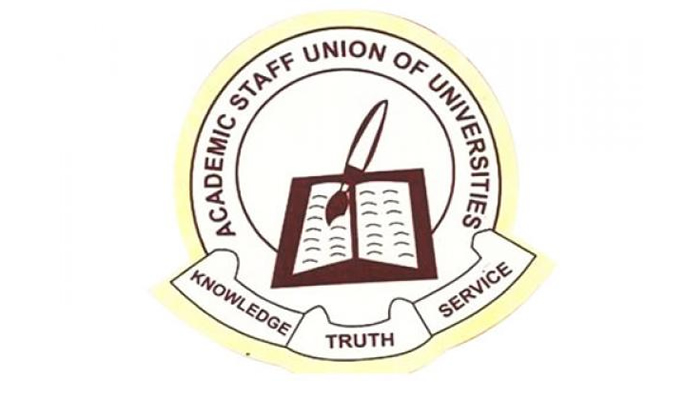The Academic Staff Union of Universities (ASUU) announced the suspension of its nationwide 2-week warning strike for one month, many Nigerians heaved a sigh of relief. Speaking to journalists after the ASUU National Executive Council (NEC) meeting in Abuja, The President of ASUU, Comrade Chris Piwuna warned that the union would not hesitate to resume the strike if the government fails to meet its demands within one month.
This announcement came with a relief with parents and students rejoicing. Students can now go back to campuses, and the government congratulated itself for “restoring normalcy” in Nigeria’s public universities.
Beneath this brief calm lies a deep worry that the strike has not ended; it has only been paused. The suspension of the strike looks like a victory to the Federal Government, the Minister of Education and other stakeholders on the government side, but for parents, students and ASUU, this is a test of sincerity—a final chance for the government to redeem decades of broken promises.
For more than four decades, the relationship between ASUU and the Federal Government has been a cycle of confrontation, negotiation, and disappointments. Each dispute begins with hope and ends in betrayal. From the 1999 and 2009 agreements to the 2020 and 2022 Memoranda of Understanding and Action, every administration has promised to revitalise public universities, pay earned allowances, and respect the autonomy of the institutions. Yet those promises have not been honoured.
The roots of these recurring crises lie in the government’s consistent failure to treat education as an investment in national development. The consequences of that attitude are evident across the system. Overcrowded lecture halls, obsoletelaboratories, understocked libraries and hostels unfit for human habitation are the main features of our universities. This poor condition of universities is the major contention between ASUU and the Federal Government of Nigeria. Many lecturers teach under punishing conditions. Since 2009 university teachers’ salaries remained stagnant and their allowances are either delayed or not paid at all. Research funding remained grossly inadequate. The result is disillusionment, strikes, and the steady decay of Nigeria’s most vital institutions.
Every strike is a symptom of a larger systemic failure. When agreements are signed and ignored, it breeds distrust. ASUU no longer believes in government assurances, and government officials, in turn, accuse ASUU of obstinacy. This mutual suspicion sustains a cycle that benefits no one and cripples the nation’s intellectual backbone. While politicians negotiate delays, students lose years of their lives, parents lose savings, and the nation loses credibility.
ASUU’s current decision to suspend its strike for one month should not be seen as show of weakness but an act of responsibility. It reflects the union’s willingness to give dialogue another chance, even when history counsels doubt. But this grace period is not indefinite. It is a test of whether Federal Government of Nigeria can finally rise above the politics of promises and deliver tangible commitments. If, after one month, government actions still fall short, the outcome is predictable.
It must be said plainly that the responsibility for this recurring crisis lies squarely with government leadership. Education ministers, Finance and Labour ministers over the years have turned signed agreements into decorative documents. Instead of building continuity, each administration resets the conversation, pretending the past does not exist. That lack of policy memory and institutional discipline is the real crisis—one that no negotiation can resolve until governance itself becomes accountable.
Leadership Newspapers believes this is the time for action, not rhetoric. The Federal Government must immediately demonstrate sincerity by implementing the outstanding components of its agreement with ASUU. Or renegotiate the agreements in an honest and sincere manner. Revitalisation funds must be released without bureaucratic delays. Earned academic allowances must be mainstreamed into the lecturers’ salaries as promised. Promotion arrears must be cleared. Above all, government should establish a transparent mechanism to monitor progress and publicly communicate timelines. These actions are obligations to the Nigerian people.
More important than all these recommendations is sincerity. Government cannot continue to negotiate in bad faith while expecting peace in the universities. Every unfulfilled promise deepens cynicism among the intellectual class and erodes the moral authority of leadership. A nation that cheats its teachers is sabotaging its own future.
ASUU, for its part, must also rise above perpetual confrontation. It should strengthen accountability and ensure transparency in its demands, and embrace reform-minded engagement. The goal should not be endless strikes but sustainable stability in the education sector. Industrial action should be the last resort, not a recurring instrument of frustration.
Leadership believes that the one-month suspension now in place should be treated as a national opportunity. It is time for the Federal Government to rebuild trust through verifiable action. Paying lip service to education while expecting innovation, productivity, and national cohesion is a contradiction that has already cost Nigeria too much.
The stakes are enormous. Every month of inaction widens the gap between Nigeria and nations that invest strategically in knowledge. Every unfulfilled promise pushes another lecturer abroad, another student into despair, and another university into decline. This cycle must be broken.





